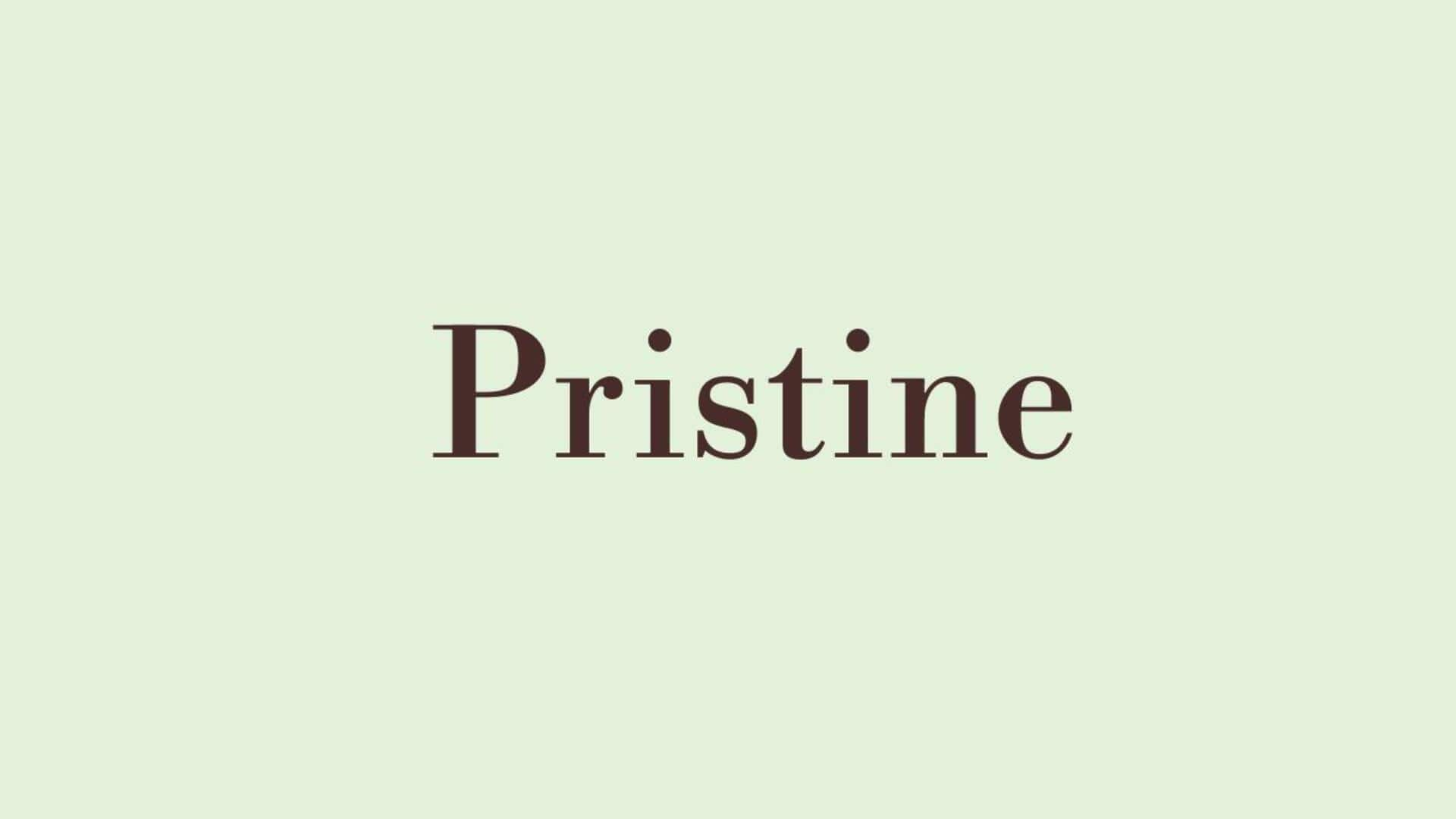
Word of the Day: Pristine
What's the story
"Pristine" refers to something in its original, unspoiled condition, clean, fresh, and untouched. It can describe natural landscapes, brand-new items, or anything preserved in perfect form. Often, it carries a sense of purity, implying that the subject remains exactly as it was, uncorrupted by time, use, or human interference.
Origin
Origin of the word
"Pristine" comes from the Latin word pristinus, meaning "former" or "original." It entered English in the 16th century, initially meaning "ancient." Over time, the meaning evolved to highlight the untouched or unaltered state of something. Today, it's commonly used to express admiration for things that are clean, new, or naturally perfect.
Synonyms
Synonyms for 'pristine'
Similar words include: immaculate, spotless, unspoiled, untouched, flawless, perfect, clean, fresh, pure, and mint condition. These words convey a sense of order, cleanliness, or preservation. Whether referring to nature, a room, or an antique, such synonyms help paint a picture of undisturbed beauty or well-maintained excellence.
Sentence
Sentence usage
Let's see how "pristine" is used in various scenarios: "The hikers were awed by the 'pristine' lake high in the mountains." "She kept her vintage books in 'pristine' condition." "Despite the crowd, the gallery floor remained 'pristine.'"
Writing
Why use the word
Using "pristine" adds elegance and precision to descriptions, making it ideal for writing about nature, luxury, or careful maintenance. It evokes admiration, whether you're describing a scenic view, a meticulously kept space, or a valuable object. It's a strong word for conveying admiration for perfection in form or preservation.